
Russell T. Warne discusses lessons learned from artificial intelligence regarding the human mind, including discussions on sentience, errors made by AI programs, creativity, and the propensity for AI programs to fabricate information.


Russell T. Warne discusses lessons learned from artificial intelligence regarding the human mind, including discussions on sentience, errors made by AI programs, creativity, and the propensity for AI programs to fabricate information.
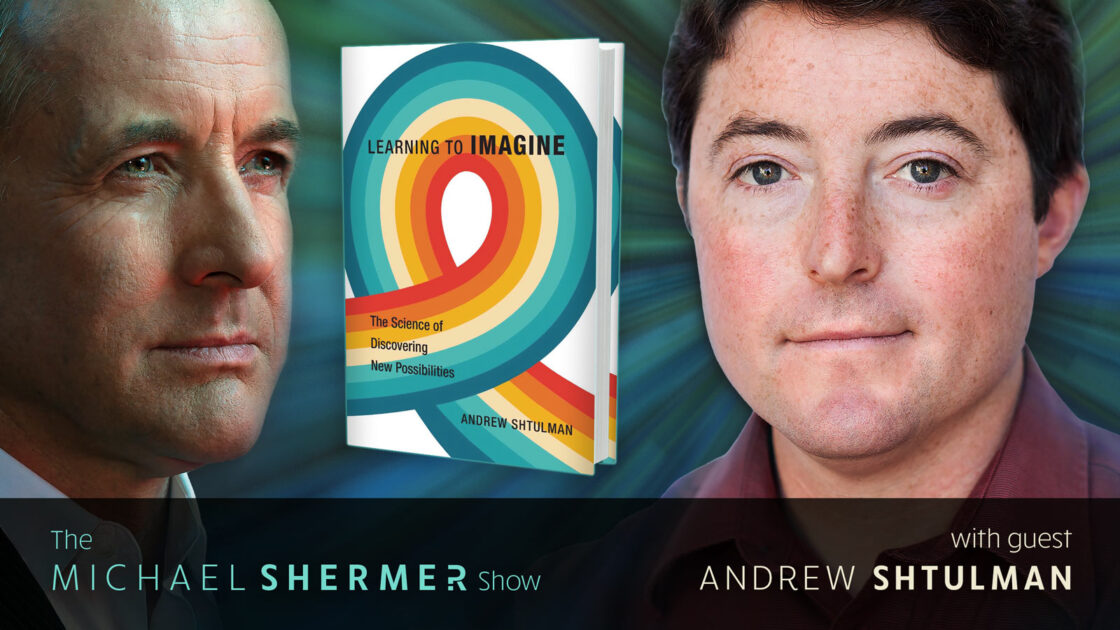
Shermer and Shtulman discuss: • imagination: the capacity to generate alternatives to reality • imagination’s purpose and structure • anomalies and counterfactuals • principles: scientific, mathematical, ethical • models: pretense, fiction, religion • development of imagination • how children understand causality • purpose of pretend play • theory of mind • religious practices • AI and creativity • The Beatles • Montessori education.
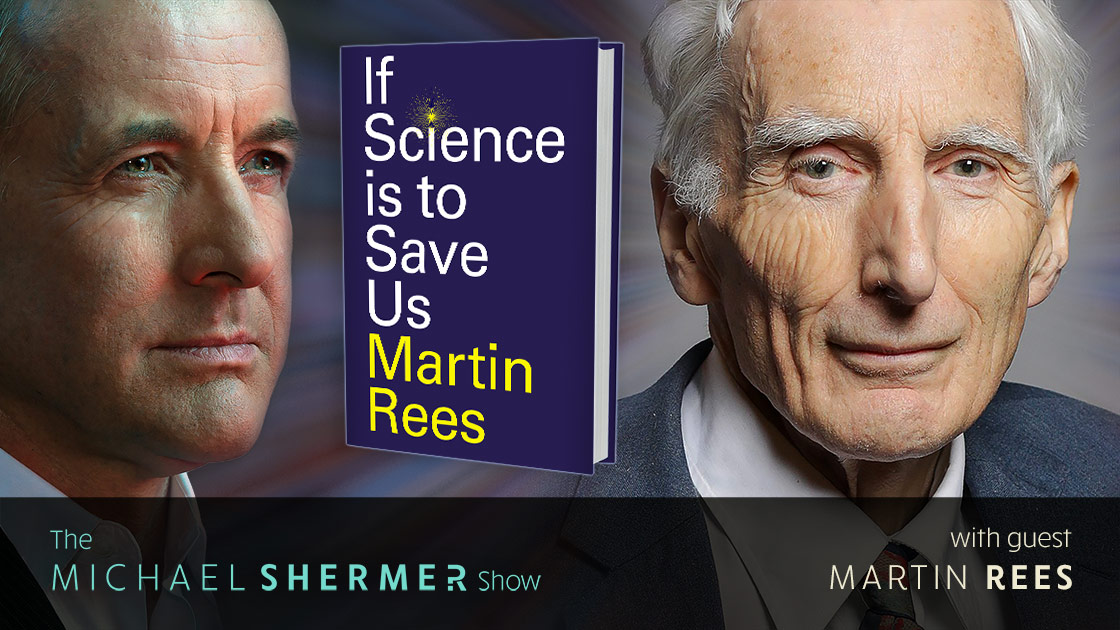
Shermer and Rees discuss: existential threats • overpopulation • biodiversity loss • climate change • AI and self-driving cars, robots, and unemployment • his bet with Steven Pinker • his disagreement with Richard Dawkins • how science works as a communal activity • scientific creativity • science communication • science education • why there aren’t more women and people of color in STEM fields • verification vs. falsification • Bayesian reasoning and scientific progress • Model Dependent Realism and the…
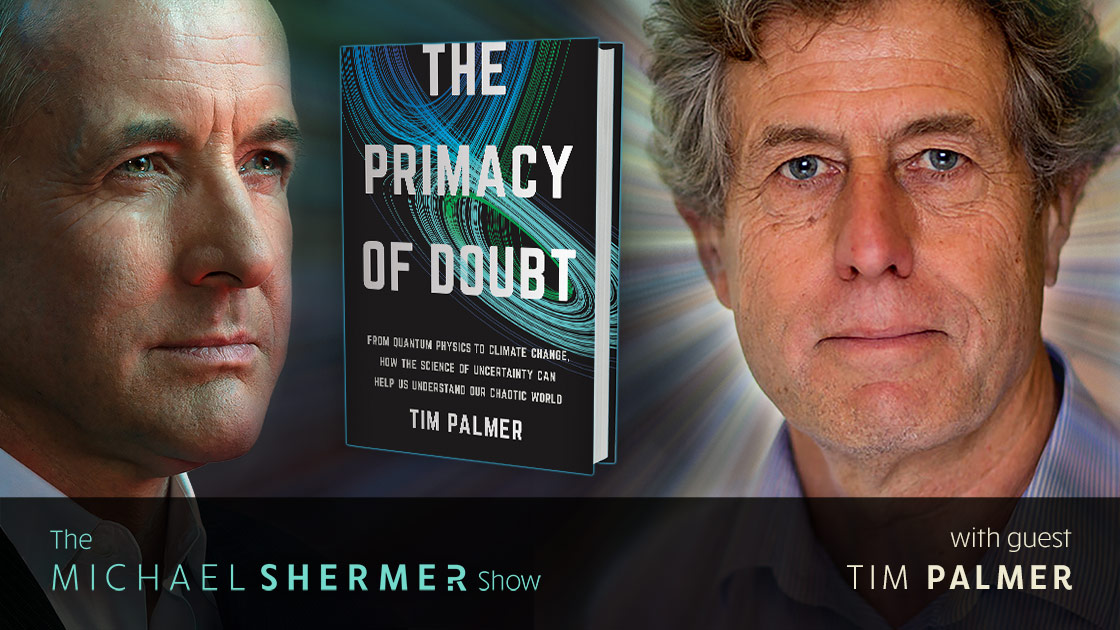
Shermer and Palmer discuss: doubt and skepticism • when doubt slides into denial • uncertainty as a measurement problem vs. inherent in natural systems • contingency and necessity, randomness and law • the butterfly effect • the geometry of chaos • quantum uncertainty • weather forecasting • climate change • pandemics • economic recessions • human decision making and creativity • free will • consciousness, and God.
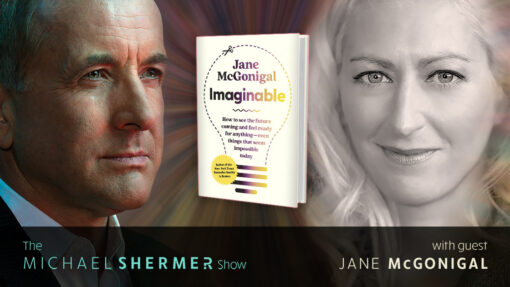
Shermer speaks with world-renowned future forecaster and game designer, Jane McGonigal, about her book Imaginable in which she draws on the latest scientific research in psychology and neuroscience to show us how to train our minds to think the unthinkable and imagine the unimaginable by inviting us to play with provocative thought experiments and future simulations.
Shermer speaks with world-renowned future forecaster and game designer, Jane McGonigal, about her book Imaginable in which she draws on the latest scientific research in psychology and neuroscience to show us how to train our minds to think the unthinkable and imagine the unimaginable by inviting us to play with provocative thought experiments and future simulations.

Michael Shermer speaks with writer, comedian, and five-time Emmy winning Senior Writer for John Oliver’s Last Week Tonight, Jeff Maurer, about the nature of creativity, comedy, politics, culture, and how the television business really works!
Michael Shermer speaks with writer, comedian, and five-time Emmy winning Senior Writer for John Oliver’s Last Week Tonight, Jeff Maurer, about the nature of creativity, comedy, politics, culture, and how the television business really works!

In episode 177 of Michael Shermer’s podcast, he speaks with neuroscientist and literature professor Dr. Angus Fletcher about 25 of the most powerful developments in the history of literature, from ancient Mesopotamia to Elena Ferrante.
In episode 177 of Michael Shermer’s podcast, he speaks with neuroscientist and literature professor Dr. Angus Fletcher about 25 of the most powerful developments in the history of literature, from ancient Mesopotamia to Elena Ferrante. PLUS: From now through May 3, 2021 all print and digital back issues of Skeptic magazine are on sale for only 99 cents each! Now is the time to complete your collection!
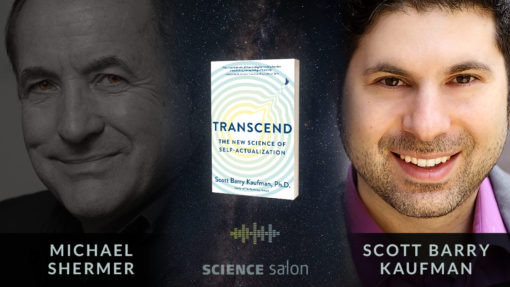
In Science Salon # 111 Michael Shermer speaks with psychologist Scott Barry Kaufman about his book Transcend: The New Science of Self-Actualization. Kaufman picks up where Abraham Maslow left off, unraveling the mysteries of his unfinished theory of transcendence, and integrating these ideas with the latest research on attachment, connection, creativity, love, purpose and other building blocks of a life well lived.
In Science Salon # 111 Michael Shermer speaks with psychologist Scott Barry Kaufman about his book Transcend: The New Science of Self-Actualization. Kaufman picks up where Abraham Maslow left off, unraveling the mysteries of his unfinished theory of transcendence, and integrating these ideas with the latest research on attachment, connection, creativity, love, purpose and other building blocks of a life well lived.
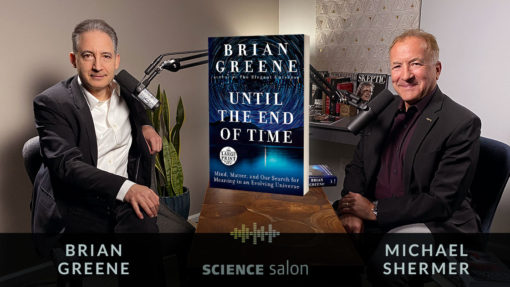
Until the End of Time is Brian Greene’s breathtaking new exploration of the cosmos and our quest to find meaning in the face of this vast expanse. Greene takes us on a journey from the big bang to the end of time, exploring how lasting structures formed, how life and mind emerged, and how we grapple with our existence through narrative, myth, religion, creative expression, science, the quest for truth, and a deep longing for the eternal.
In Science Salon # 108 Michael Shermer speaks with Brian Greene about his book Until the End of Time: Mind, Matter, and Our Search for Meaning in an Evolving Universe. PLUS, during the Coronavirus outbreak, while many schools are closed, Shermer shares one of his Chapman University lectures, taught remotely, free for everyone to view.
Are the greatest artists, musicians, and writers melancholic, bipolar, alcoholic, drug addicted, schizophrenic, autistic, or disordered in other ways? How can we know, with any degree of certainty, whether creativity and mental illness are related? In this week’s eSkeptic, Dr. Carol Tavris takes a look at the persistent myth of the mad genius. This article appeared in Skeptic magazine 20.1 (2015).
Whether at home or on the go, the SKEPTIC App is the easiest way to read your favorite articles. Within the app, users can purchase the current issue and back issues. Download the app today and get a 30-day free trial subscription.







